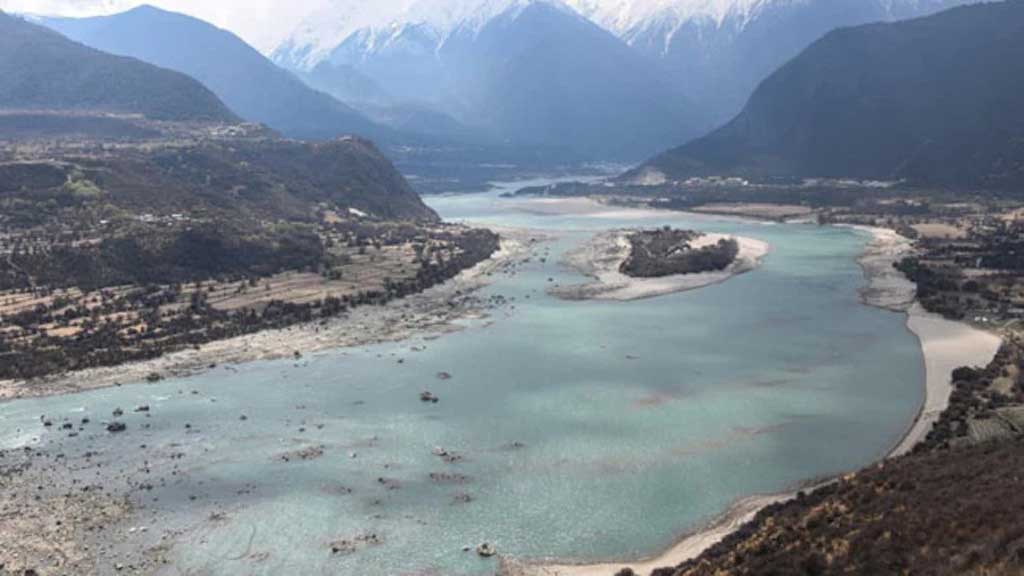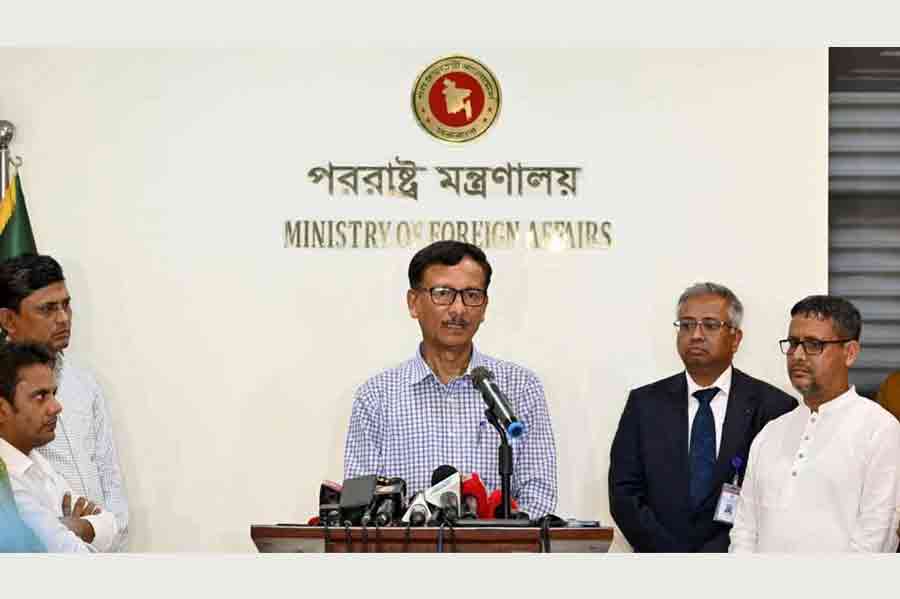Saif
Senior Member
- Messages
- 14,634
- Reaction score
- 7,628
- Origin

- Residence

- Axis Group

Date of Event:
Jan 28, 2025
China, India will be urged to consider Bangladesh’s interests during dam construction: Rizwana
Photo: Star
Bangladesh will request China and India to ensure that planned dams on the Siang River in Arunachal Pradesh and near the Tibet border are constructed without compromising Bangladesh's interests, said Environment Adviser Syeda Rizwana Hasan today.
"China has assured us that the project will not harm Bangladesh. We have formally sought details about the plan," she said replying to a query after coming out from the 55th governing board meeting of the River Research Institute (RRI) in Faridpur Circuit House.
On India's proposed dam, she said, "There are internal disputes within India regarding the project, and we are working to protect our national interests."
Padma and Teesta rivers are already experiencing reduced water flow and if the Brahmaputra's flow is reduced, Bangladesh will face severe challenges, she said, reports UNB.
Emphasising the importance of the RRI, she said it has the potential to deliver significant results if provided with adequate resources. "The the government is working to secure larger allocations for research in the upcoming budget."
Commenting on the impact of illigal sand lifting from rivers, she said, "Research has been initiated to assess how sand extraction is affecting our rivers."
Following the briefing, the adviser inspected the institute's operations and the Water Development Board.
China recently approved the construction of the world's largest dam on the Yarlung Zangbo River in Tibet's Medog County, near the border with India.
The project, described as China's most ambitious, was officially announced in 2020.
In response, Indian officials began exploring the possibility of building a counter-dam to address potential disruptions caused by China's project.
[Our Faridpur correspondent contributed to this report]
Bangladesh will request China and India to ensure that planned dams on the Siang River in Arunachal Pradesh and near the Tibet border are constructed without compromising Bangladesh's interests, said Environment Adviser Syeda Rizwana Hasan today.
"China has assured us that the project will not harm Bangladesh. We have formally sought details about the plan," she said replying to a query after coming out from the 55th governing board meeting of the River Research Institute (RRI) in Faridpur Circuit House.
On India's proposed dam, she said, "There are internal disputes within India regarding the project, and we are working to protect our national interests."
Padma and Teesta rivers are already experiencing reduced water flow and if the Brahmaputra's flow is reduced, Bangladesh will face severe challenges, she said, reports UNB.
Emphasising the importance of the RRI, she said it has the potential to deliver significant results if provided with adequate resources. "The the government is working to secure larger allocations for research in the upcoming budget."
Commenting on the impact of illigal sand lifting from rivers, she said, "Research has been initiated to assess how sand extraction is affecting our rivers."
Following the briefing, the adviser inspected the institute's operations and the Water Development Board.
China recently approved the construction of the world's largest dam on the Yarlung Zangbo River in Tibet's Medog County, near the border with India.
The project, described as China's most ambitious, was officially announced in 2020.
In response, Indian officials began exploring the possibility of building a counter-dam to address potential disruptions caused by China's project.
[Our Faridpur correspondent contributed to this report]





